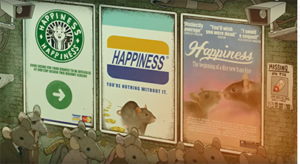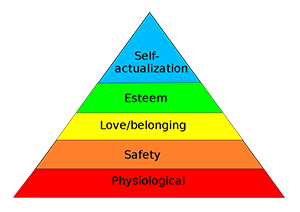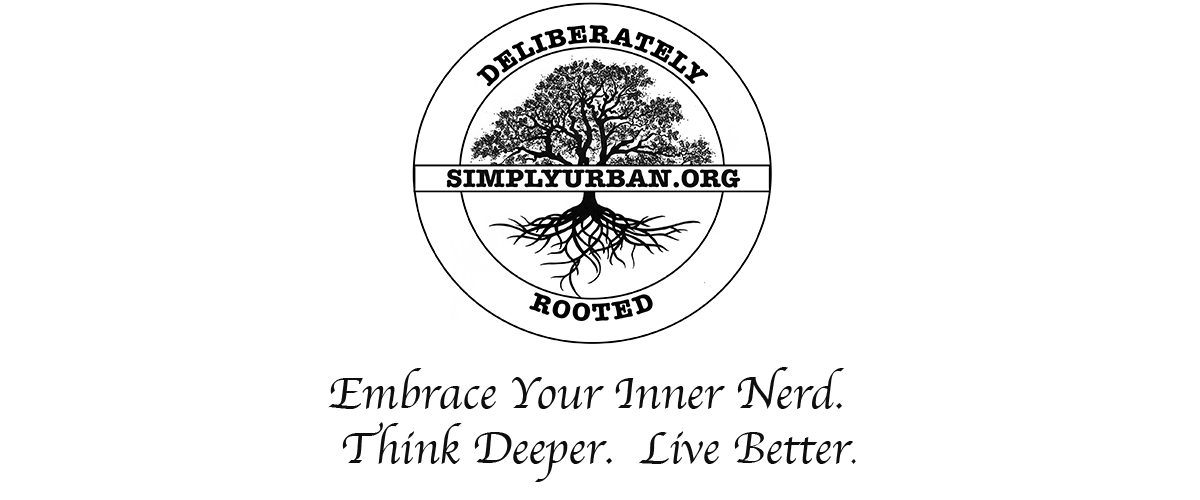Am I happy? What makes us happy? What if I’m not happy? In this essay, I explore the best thinking about happiness and suggest ways for a better life.
What is Happiness?
Hollywood enthuses:
The only thing that will make you happy is being happy with who you are, and not who people think you are.” Goldie Hawn
Pop psychology exhorts:
“It isn’t what you have, or who you are, or where you are, or what you are doing that makes you happy or unhappy. It is what you think about.” Dale Carnegie
Religion emphasizes:
“If you are quiet enough, you will hear the flow of the universe. You will feel its rhythm. Go with this flow. Happiness lies ahead. Meditation is key.” The Buddha
Got it? Get it? Good, because I don’t. We use ‘happiness’ as an amorphous term that’s held up as an essential life goal across cultures and time, but never consistently defined.
Philosophers, thinkers, and religious leaders sought a better understanding of happiness throughout the ages. Even in the Declaration of Independence, Thomas Jefferson establishes “life, liberty, and the pursuit of happiness” as a foundational and enduring feature of human existence.
Indoctrination by Corporations
Great thinkers and religions aside, mass media dominates our ideas on happiness. But, they’re only interested in making money, not with you living a good life. Marketers play on our instinctual drives. My Commentary on Civilization and Its Discontents explores some of these drives. Through its 24/7 indoctrination into questionable societal norms, it teaches the smallest child that happiness comes from getting the newest toy, latest fashion, smartphone, or some other special thing. Here’s an article explaining this phenomenon.
Getting a shiny new GI Joe Sky Striker toy airplane stands out as one of my happiest memories. My eight-year-old heart yearned for it more than words could describe. I wanted that airplane so much. But, I gave up the thought of ever getting one because I believed my parents couldn’t afford it.
Then, on that special Christmas morning, I unwrapped the best in any Christmas gift ever. I was so excited, I snatched up my Sky Striker, and ran across the street to show my best friend. He’d gotten that helicopter he’d wanted. We jumped up and down together, hugging, in deliriums of childish glee. But our excitement only lasted so long. Soon, we forgot about those toys and wanted different things.
Industrialized societies provide more material comfort than we, or any other humans in history, ever had. Yet, “we are prosperous but anxious, indulged yet unsatisfied,” wrote Nathen Blake at Fedearlist.com.
“Rousseau asserted that“social man lives constantly outside himself, and only knows how to live in the opinion of others, so that he seems to receive the consciousness of his own existence merely from the judgment of others concerning him.” Our culture’s social media obsessions are perhaps the purest illustration yet of this human tendency.”
Happiness Conundrum
Despite our civilization’s material success, many measures of unhappiness are on the rise. We’ve seen the opioid epidemic become the number one killer of people under 50. Sharp increases in suicide rates across the US signal our collective discontent. An outbreak of isolation and loneliness make it worse. Over half of Americans are lonely while two-fifths report a lack of meaningful relationships and isolation from others, according to recent surveys. The use of antidepressant drugs increased by over 400%, according to this Harvard Study.
Growing up in our consumer culture, I believed that money paved the path to happiness. I went on to become a workaholic and accumulate wealth relatively early in life. At one point, I had a big house that had an entire room, with its own fireplace and deck, devoted exclusively to my Xbox. When I got tired of playing video games by the fire, I’d go in the garage and rub my shiny new Corvette with a diaper.
Even though I had all the stuff I could ever want, none of it made me happy or fulfilled. If anything, I felt anxious and adrift. Steve Cut’s viral meme on Happiness debunks this view better than I could. It’s worth four minutes of your time.

“Don’t store up for yourselves treasures on earth, where moth and rust destroy and where thieves break in and steal. But store up for yourselves treasures in heaven, where neither moth nor rust destroys, and where thieves don’t break in and steal. For where your treasure is, there your heart will be also.” (Matthew 6:19 to 21)
What does Science Add to this Happiness Essay?
Maslow’s Hierarchy of Needs, a widely accepted psychological theory on well-being, explains this universal need, loosely called happiness. Maslow summarizes the landscape of human needs in his pyramid-shaped infographic (below) as a series of progressive needs. From a different perspective and at different times, each level of this hierarchy could make you happy. Satisfying the necessities of life, like food and shelter, free your mind for thoughts of other forms of happiness. You don’t concern yourself with needs like relationships, belonging, or self-actualization if you’re starving. But once you’re fed, safe, and warm you turn your efforts to attain higher levels on the hierarchy like belonging and esteem. I believe most people in developed economies meet their physiological needs of food and shelter sufficient to sustain life, and that most generally enjoy safety.

Purpose and Belonging
Self-actualization means having a sense of purpose and meaning. Later in life, Maslow clarified his thoughts asserting that the self only finds its actualization in giving itself to some higher outside goal and in altruism and spiritual ideas.
I think the psychologist Martin Seligman said it best:
“Meaning comes from belonging to and serving something beyond yourself and from developing the best within you.”
Our culture is obsessed with happiness, which many take to mean having material comfort and ease. But, material possessions are a cold solace without a sense of belonging, meaning, and purpose. Studies show people that have belonging and purpose are more resilient, do better at work, and live longer.
For the past 80 years, the Harvard Grant Study has been tracking various cohorts of people to get a better understanding of how to be happy. Here are five lessons from that study.
Five Pillars for a Happy and Meaningful Life
- The essential ingredient is loving relationships. Even people with successful careers and good physical health were not fulfilled without loving relationships.
- Money and power are small parts of a fulfilling life; they correlate poorly with happiness. Those proudest of their achievements are those most content in their work, not the ones who make the most money.
- It doesn’t matter where you start, we all can become happier in life as we proceed through it, despite our beginnings.
- Connections with others and work are essential for joy, and this seems to be increasingly accurate as one ages.
- Coping well with challenges makes you happier. The key is to replace narcissism with mature coping mechanisms like concern for others and productive work.
This analysis coincides with Viktor Frankl’s discoveries about meaningful life in his seminal Man’s Search for Meaning. Frankl says we find meaning through personal relationships, productive work, and nobly enduring suffering. Many scholars consider Frankl an authority on happiness and leading a good life.

Think Deeper, Live Better
One of the biggest obstacles to happiness is understanding what that means.
Many people living in developed economies have abandoned their roots. We’ve traded social media likes for sincere, meaningful connections. We trade the time we need to find spirituality and purpose commuting to jobs we don’t like to pay for stuff we don’t need. And when all that makes us unhappy, we take a pill to feel better.
We owe it to ourselves to find a better way. Embrace your inner nerd. Think Deeper. Live Better.
What do you think?
Thanks for reading to the end! This blog is my project in the pursuit of truth. I spend dozens of hours researching each blog post, so I hope you found something useful.
Our click-bait culture needs good ideas in an increasingly complex world. That depends on good men and women engaging in intellectually honest discussions, sharing ideas, and challenging each other’s thinking. Writing out my thoughts in detail, along with lots of research, helps me arrive at a more accurate view of truth based on well-documented facts.
If you’d like to support my blog please buy my book. Here’s the link!





4 Comments
Leave your reply.